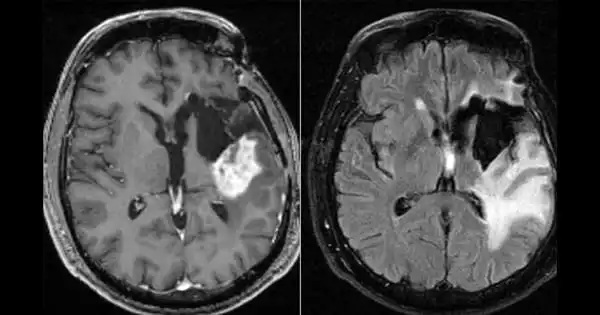The imaging provided by an MRI scanner that is mobile and portable is referred to as portable magnetic resonance imaging (MRI). It provides MR imaging to the patient in real-time and on-site, for example, in an intensive care unit (ICU) where moving the patient is dangerous, in an ambulance after a disaster rescue, or in a field hospital/medical tent.
When patients exhibit stroke symptoms, doctors must make a life-or-death decision: Are the symptoms caused by a clot, which can be treated with blood thinners, or by bleeding in the brain, which may necessitate surgery?
A new Yale-led study shows that a portable MRI device can help identify such intracranial hemorrhages, potentially saving lives in areas or scenarios where sophisticated brain imaging scans are not readily available. The findings were published in Nature Communications.
There is no doubt that this device can help save lives in resource-limited settings, such as rural hospitals or developing countries. It is critical that we continue to collect more data on a variety of stroke characteristics in order to maximize the potential benefit of this approach.
Kevin Sheth
“There is no doubt that this device can help save lives in resource-limited settings, such as rural hospitals or developing countries,” said Kevin Sheth, co-corresponding author of the study and professor of neurology and neurosurgery at Yale School of Medicine. “There is also a path to see how it can be useful in modern settings. It is critical that we continue to collect more data on a variety of stroke characteristics in order to maximize the potential benefit of this approach.”
The study looked at the effectiveness of a device known as the Portable Point-of-Care MRI system. It can be wheeled down a hospital corridor, costs a fraction of traditional MRI technologies, and can be used almost anywhere by medical technicians with even minimal training, according to researchers. It was created by Hyperfine Research Inc., a subsidiary of Catalyzer, a medical technology incubator based in Guilford, Connecticut.
Magnetic resonance imaging (MRI), computed tomography (CT scans), ultrasounds, positron emission tomography (PET scans), and X-rays are examples of medical imaging tests used in healthcare. Unlike X-rays, computed tomography and magnetic resonance imaging can operate without the use of ionizing radiation. CT scans are three-dimensional x-ray techniques that use an x-ray beam to examine the patient’s body from a variety of angles. Radiation detectors use electrical impulses to capture these x-rays, which can then be analyzed or altered using a computer.

The Yale team, led by Sheth and Mercy Mazurek, a clinical research analyst and first author, and co-corresponding author W. Taylor Kimberly of Massachusetts General Hospital, compared the results of 144 portable MRI scans at Yale New Haven Hospital to the results of traditional neuroimaging scans. The portable MRI was specifically used to scan brain injury patients at the bedside.
Eighty percent of intracerebral hemorrhages were correctly identified by neuroradiologists interpreting images acquired by Hyperfine’s portable MRI. The study is the first to use a portable MRI device to validate the appearance and clinical implications of a brain hemorrhage.
Sheth and his colleagues are also looking into the potential of portable MRI technologies for diagnosing and monitoring head trauma and brain tumors, as well as assessing brain health in people with risk factors like high blood pressure.
A portable MRI is a self-contained suite that includes the scanner, control room, and, in some cases, a patient changing area. The suite is referred to as a mobile unit because it is housed in a 48′ semi-trailer that can be transported between multiple locations or connected directly to a facility. Hyperfine researchers also contributed to the paper. The American Heart Association, the National Institutes of Health, and Hyperfine Research provided the majority of funding for the study.
Portable MRI scanners are a critical component that is gaining traction in the healthcare industry. They are used to diagnose various diseases as well as to develop treatment plans. However, in hospitals that use fixed MRI scanners, the ability to share visual data remotely is limited. The use of portable MRI scanners serves as a foundation for visual communication and dedicated imaging software, removing the technical barriers that are typically associated with using portable services.
Portable MRI scanners improve communication among healthcare providers, which is critical in providing the best possible patient care. The ability to access medical images from any location is advantageous for patient-to-doctor or doctor-to-doctor communication.





